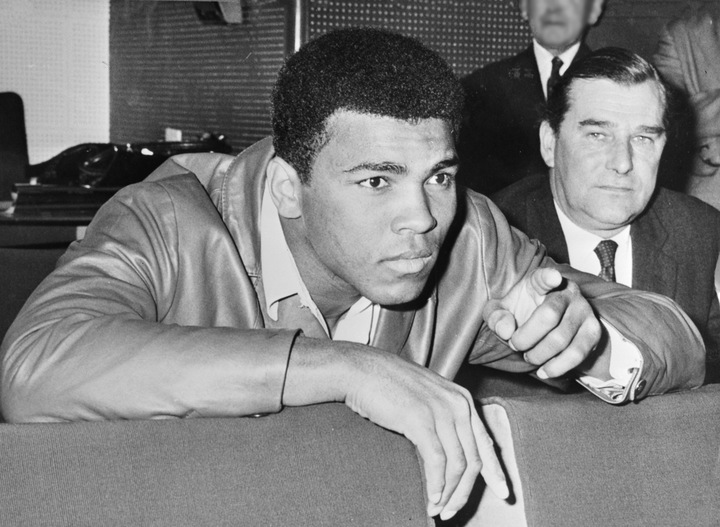Wilder v Fury II won’t be like this!
Muhammad Ali was tired. At age 34 and having just gone through the sheer hell that was the October 1975 “Thrilla In Manila” with his fiercest, most demanding rival Joe Frazier, the world heavyweight champion needed a breather. He sure got one in his first fight of 1976. Ali – who really should have called it quits on a glorious, nothing left to prove career after escaping with his life in the Philippines – somehow ended up defending against a Belgian in Puerto Rico.
It was in February of 1976 when Ali, the most famous athlete, if not person, period, on planet earth met Jean-Pierre Coopman. What followed was a ludicrously easy fight for the ageing Ali. Indeed, the fight is only remembered because of its quirky elements; that and it was an Ali fight of course.
Coopman may have been no formidable challenger (in fact, it coud be argued that, of all Ali’s many world title challengers, Coopman was the worst), but the 29 year old was not afraid of Ali. Instead of appearing intimidated, Coopman could scarcely stop himself from smiling when in Ali’s presence. The Belgian who had boxed all his pro fights at home (save for a fight in Norway and one in Holland) was a classic case of a fighter who was simply happy, overjoyed even, to be there.
Ali, who had battled a dose of flu in the run-up to the fight, his 52nd, was soon smiling himself. In the opening round, tying Coopman up in his customary manner of testing the physical strength of his foe, Ali came out of the clinch with a beam on his face. Now he new how much stronger he was than Coopman. Ali did whatever he liked in the fight in sweltering Puerto Rico. Winning with ease, Ali then closed the show with a tasty uppercut in the fifth. Coopman, carried back to his stool, with Ali offering a helping hand, was still on a high.
Between rounds, Coopman had been drinking champagne, not water! The felled challenger later admitted to this quite freely, stating how he had wanted to feel “euphoric” during the fight. Coopman had a throng of his countrymen there to support him, yet back home in Belgium the fight had not be televised, illegal as it was to show boxing there at the time.
Ali was for once lost for words, mumbling only how his win was “nothing to brag about, he ain’t a great fighter.” That Coopman was not, but “The Lion Of Flanders” (as Coopman was dubbed by the U.S press) holds a curious footnote in heavyweight championship history – that of the happiest, most inept but at the same time likeable world title challenger in history. And one who glugged on fine champagne as he had his fifteen minutes in the sun.
Despite losing, as everyone knew he would, Coopman really did have a blast.
